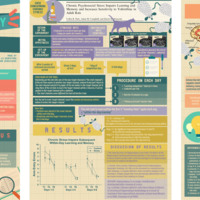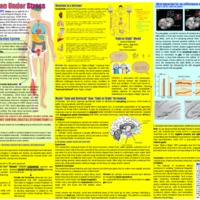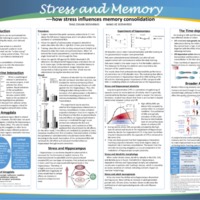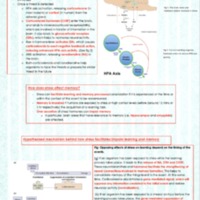CCST9046-The Science of the Mind-body-health Relationship
Title
CCST9046-The Science of the Mind-body-health Relationship
Subject
Scientific and Technological Literacy
Description
In this course, students will delve into cutting edge issues in the science of the mind-body-health relationship and analyze how communication occurs both within and across the body’s systems (nervous, endocrine, immune). Philosophical issues of mind-body duality, the power of positive and negative suggestion, and the influence of brain architecture on behaviour will be critically examined.
References
Carroll, A.E. (2014, June 2). Calling an ordinary health problem a disease leads to bigger problems. The NY Times.
Englert, H. (2004). Sussing out stress. Scientific American Mind, 14(1), 56-61.
European Federation of Immunological Societies. (2009). Your amazing immune system: How it protects your body.
Feinberg, C. (2013). The placebo phenomenon. Harvard Magazine, 37-39.
Frazzetto, G. (2010, January). The science of online dating. EMBO reports, 11(1), 25-27.
Harrington, A. (2007). How to house a mind inside a brain. Lessons from history. EMBO reports, 8(S1), S12-S15.
Roth, G. (2004). The quest to find consciousness. Scientific American Mind, 14(1), 32-39.
Sapolsky, R. M. (2004). Why zebras don’t get ulcers – The acclaimed guide to stress, stress-related diseases, and coping (3rd ed.). New York: Holt Publishing. [Selections from Chaps. 1, 2, 18]
Schwarz, A. (2012, October 9). Attention disorder or not, pills to help in school. The NY Times.
Specter, M. (2013, February 4). The operator: Is the most trusted doctor in America doing more harm than good? The New Yorker.
Srivastava, R. (2012, March 1). What’s the alternative? The worldwide web of integrative medicine. New England Journal of Medicine, 366(9), 783-785.
Englert, H. (2004). Sussing out stress. Scientific American Mind, 14(1), 56-61.
European Federation of Immunological Societies. (2009). Your amazing immune system: How it protects your body.
Feinberg, C. (2013). The placebo phenomenon. Harvard Magazine, 37-39.
Frazzetto, G. (2010, January). The science of online dating. EMBO reports, 11(1), 25-27.
Harrington, A. (2007). How to house a mind inside a brain. Lessons from history. EMBO reports, 8(S1), S12-S15.
Roth, G. (2004). The quest to find consciousness. Scientific American Mind, 14(1), 32-39.
Sapolsky, R. M. (2004). Why zebras don’t get ulcers – The acclaimed guide to stress, stress-related diseases, and coping (3rd ed.). New York: Holt Publishing. [Selections from Chaps. 1, 2, 18]
Schwarz, A. (2012, October 9). Attention disorder or not, pills to help in school. The NY Times.
Specter, M. (2013, February 4). The operator: Is the most trusted doctor in America doing more harm than good? The New Yorker.
Srivastava, R. (2012, March 1). What’s the alternative? The worldwide web of integrative medicine. New England Journal of Medicine, 366(9), 783-785.
Items in the CCST9046-The Science of the Mind-body-health Relationship Collection
Stress and Memory - 1
1. Non-Conscious and Recalled memory.
2. Analyse the "Water Maze" experiment to conclude that chronic stress worsen our hippocampus dependent memory and its temporary impact.It can be recovered when getting rid of stress.
3. Noradrenaline enhances…
2. Analyse the "Water Maze" experiment to conclude that chronic stress worsen our hippocampus dependent memory and its temporary impact.It can be recovered when getting rid of stress.
3. Noradrenaline enhances…
Men and Women under stress
The poster described differences between men and women when they are under stress.
Stress and Memory - how stress influences memory consolidation
This poster displays how stress infuences memory consolidation, mainly about nervous-endocnne interaction Adrenaline and Cortisol.
Stress and Memory - 2
1. How different stresses influence memory (improve and negatively affect).
2. How different cognitive parts affect memory: Hippocampus, amygdala.
2. How different cognitive parts affect memory: Hippocampus, amygdala.
Collection Tree
- AoI-Scientific and Technological Literacy
- CCST9046-The Science of the Mind-body-health Relationship





